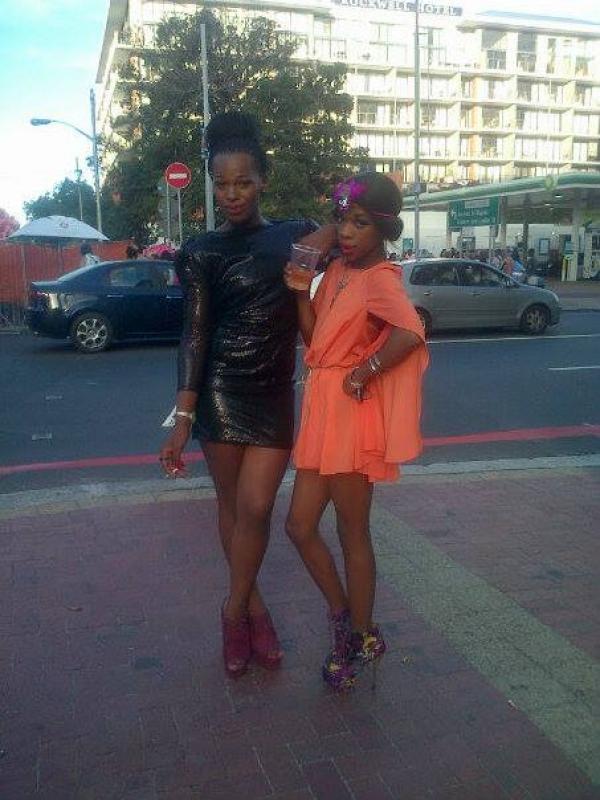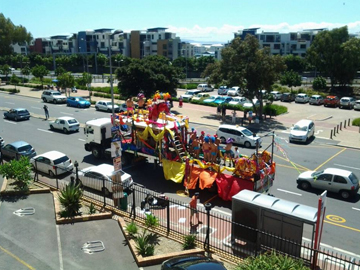Protest at Cape Town Pride

Not everyone in Cape Town celebrated Gay Pride in the same spirit.
According to Jacqui Bichabe, from LBGTI organisation Pride Yarona (Our Pride), her organisation did not celebrate Cape Town Pride by partying on the street. Instead, as a small group they protested at the event.
Bichabe says, “We did not understand what there was to celebrate at [Pride] because we felt as if issues that affect LBGTI communities were not raised. So instead, we taped our mouths using black tape, to indicate that during Pride black people are silenced.”
“Pride should be used as a platform to protest and talk about issues that affect our community. It should be a time to reflect and acknowledge certain struggles. At the same time [that we] celebrate who we are and party, there should be a balance,” she said.
The Cape Town Pride website describes the annual festival as “a celebration of our wonderful diversity, and also creates awareness around issues impacting on the lesbian, gay, bisexual, transgender and intersex communities locally and throughout Africa.”

Cape Town Pride parade. Photo by Odette Fouche.
But as GroundUp reported last week, other LGBTI organisations including Free Gender and the Triangle Project have raised concerns about whether the festival has done enough to include LGBTI people from poor communities.
“I believe Cape Town Pride is a white thing not a black thing and that was visible during this year’s pride”, says Bichabe.
Funeka Soldaat from Free Gender, a LGBTI and human rights organisation based in Khayelitsha, said that this year the Pride celebration had no value. “While people are being killed in other African countries for their sexuality, Capetonians are busy drinking and having fun to celebrate their gayness. That is selfish,” Soldaat said.
Soldaat claims that Capetonians are quiet about what is happening in Uganda and other African countries and they are pretending that other people’s struggles do not affect them.
“I do not trust the Pride organisers. They do not consider the issues that the communities face every day”, she says.
Instead of parading in the CBD like many gay organisations did, on the same day Free Gender held a prayer and dialogue session in Spin Street. This is just a few streets from where Pride was being held. Soldaat says that close to 100 people attended.
Soldaat says that the purpose of the session was to unite as Capetonians and be in solidarity with what is happening to their sisters and brothers in Africa. It also allowed Free Gender to set up a plan of action against the Ugandan laws.
Bichabe says that the LGBTI community in Cape Town is not united and people from different communities do not understand each other’s struggles. She says that an LGBTI person from Constantia does not face the same problems as a LGBTI person from Khayelitsha or Gugulethu. She said Pride should be used as a space to share information and unity, not to divide people.
Matthew van As, the director of Cape Town Pride (CTP), did not respond to GroundUp when asked for comment on these claims.

This article is licensed under a Creative Commons Attribution-NoDerivatives 4.0 International License.


